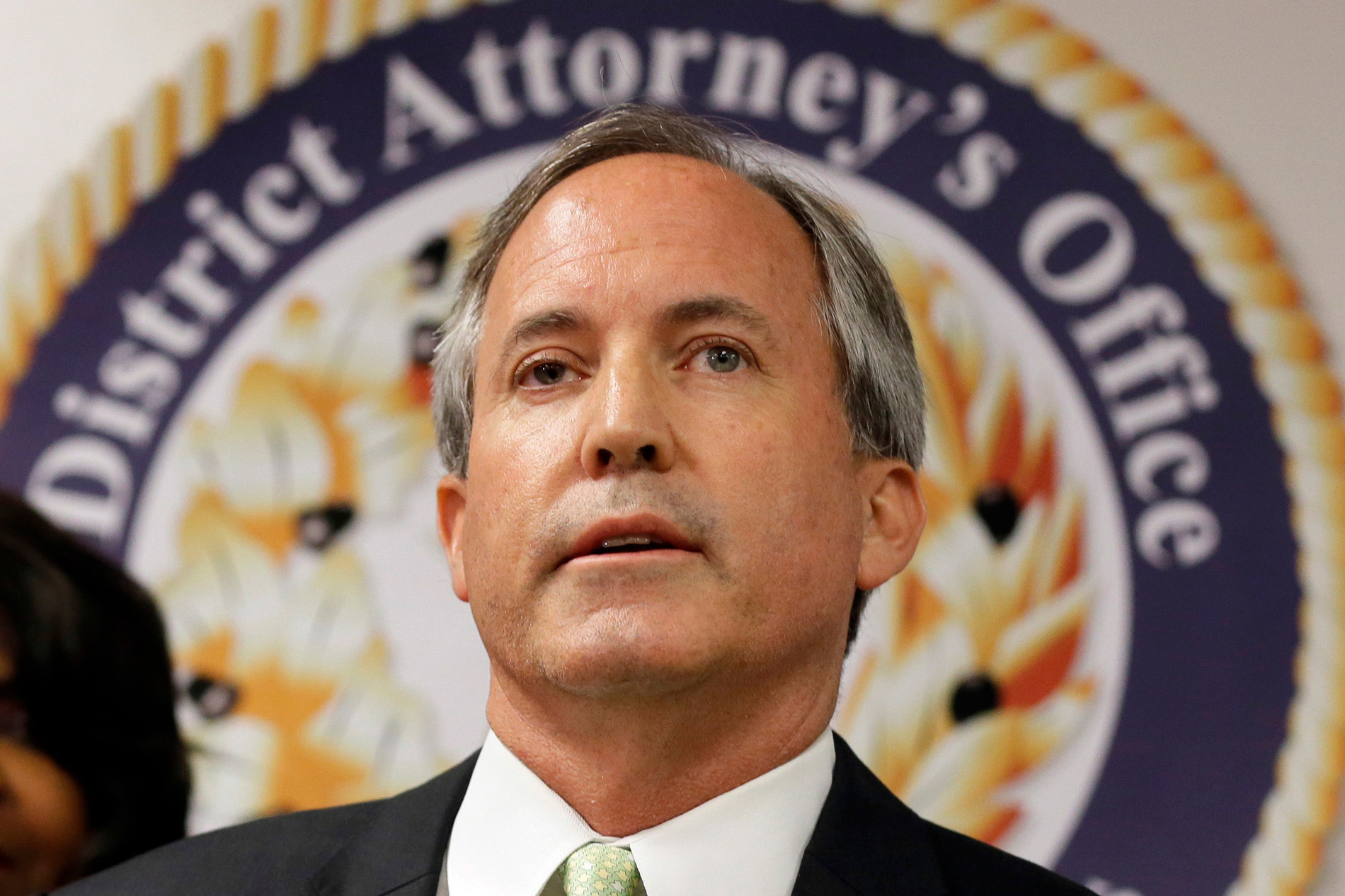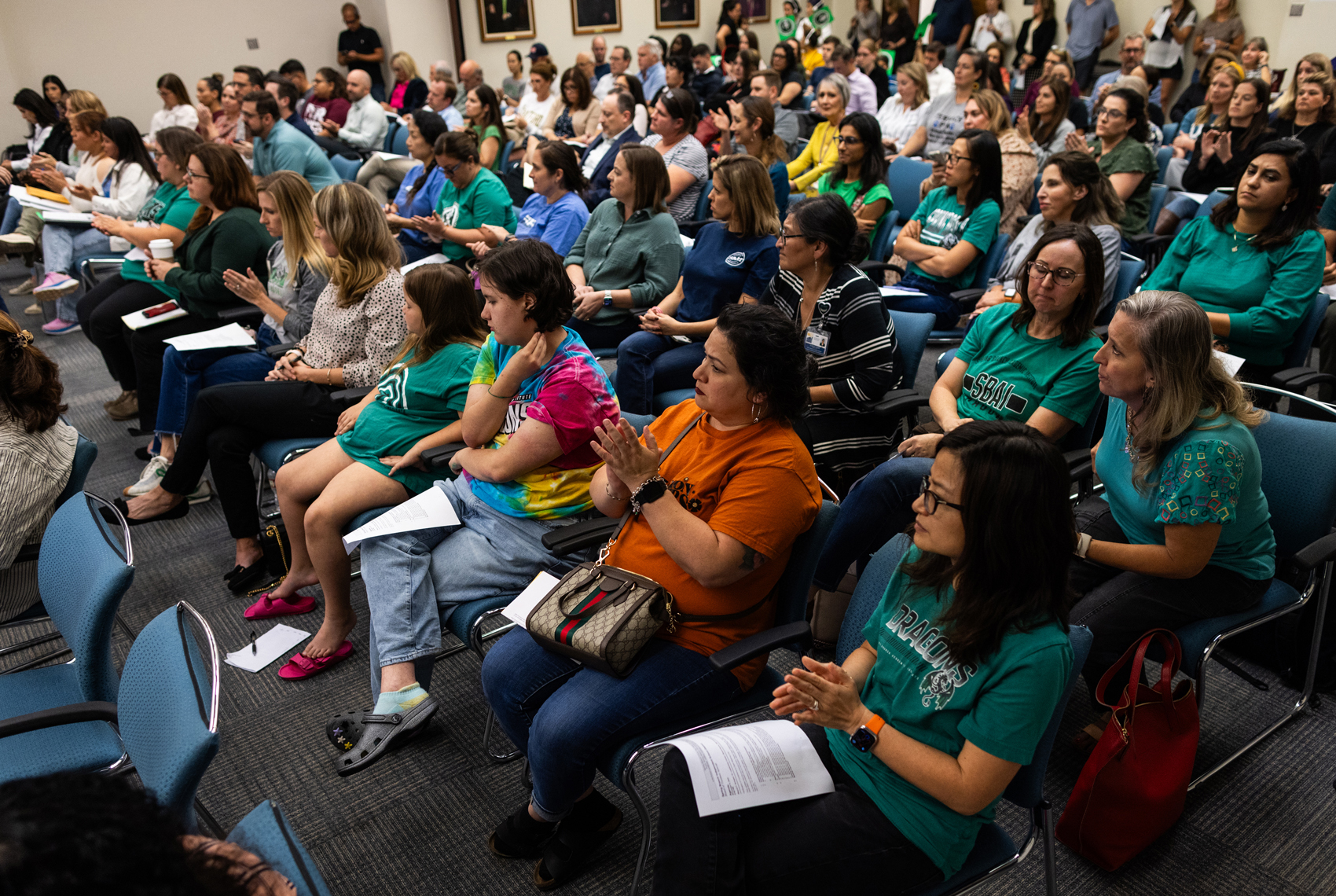|
Getting your Trinity Audio player ready...
|
Texas school districts are caught in limbo as state and federal leaders issue opposing guidance on new protections for LGBTQ+ students.
Texas Attorney General Ken Paxton has directed school districts to ignore the Biden administration’s new rules related to the Title IX federal nondiscrimination law, which will prohibit sexual orientation and gender identity-based discrimination. Under the federal rules, schools would be required to investigate claims of such discrimination.
School districts must update their policies to align with the new regulations by the time they go into effect on Aug. 1. But the directive by Paxton and similar pushback by Gov. Greg Abbott, both Republicans, leaves districts in a predicament: follow the federal rules issued by Democrats in Washington and risk backlash from state leaders, or ignore the new rules and risk Title IX noncompliance, which could result in the loss of federal funding.
Texas schools receive roughly $4 billion in federal funding annually, though it is highly unlikely they would see dramatic cuts immediately after Aug. 1.
Texas lawmakers debated in 2023 whether to force students to use bathrooms and play on sports teams that match their sex assigned at birth. However, lawmakers only enacted a law mandating that college athletes participate on sports teams matching their sex assigned at birth.
Still, Paxton is suing the Department of Education to block the new rules, arguing the federal agency doesn’t have the power to add sexual orientation and gender identity to the Title IX umbrella. The case is pending in a north Texas federal court.

“If any Texas school district adopts a policy or procedure that conflicts with or contravenes state law, then I will pursue every remedy available to protect students and teachers from these illegal and radical policies,” Paxton wrote in an advisory to school districts last week.
Pro-LGBTQ+ organizations and some civil rights advocates have hailed the new rules as a much-needed protection for transgender youth and young adults. But conservative leaders of several school districts have blasted the federal changes, which they say are radical and threatening to women.
School board members in Spring Branch ISD, a Houston school district serving nearly 34,000 students, unanimously passed a resolution Monday condemning the rules and asking the state to reimburse them if they lose their $56 million in federal funding for violating the law. Trustees approved the resolution without discussion, and Board President Lisa Alpe was not available for interview after the meeting.
“There are state laws that conflict with this final (Title IX) rule also putting you in an irreconcilable conflict,” the board’s attorney, Ellen Spaulding, said during Monday’s meeting. “What this resolution does is point out the confusion, that there is confusion and the conflict, while confirming your commitment to not allow discrimination and harassment, and while making a call to action to the governor.”
Another Spring Branch stance
Spring Branch’s plea for funding from the state comes after district leaders have spent more than a year blasting Texas lawmakers for putting them in a financial bind by not significantly increasing public school funding during the 2023 legislative session.
District leaders cut roughly $35 million from their operating budget during the 2023-24 school year by removing all librarian positions and closing several majority-Latino schools, among other changes. Superintendent Jennifer Blaine repeatedly argued the community’s backlash should be directed to the state.
Several months earlier, in September 2023, the district took a public stance against the Legislature by flying a “Come and Take It” flag and vowing not to pay millions of dollars in recapture, or property tax revenue from “property-rich” districts that the state uses to fund other districts.

related to education
Spring Branch ISD to cut 215 jobs, including librarians, central office staff in budget slash
by Miranda Dunlap / Staff Writer
Nathalie Herpin, a local community organizer and parent of two Spring Branch students, said trustees are again “posturing” and playing “political chicken” with the state government.
“This board made a big deal about recapture, loudly voting to withhold recapture, flying a silly flag from the building to prove your point, only to send the payment months later,” Herpin said. “Nobody had to come and get it. You freely gave it up. Is this the same kind of public display you are doing now?”
Spring Branch’s discussion of the policy Monday brought local attention to the wider debate over whether Title IX protections cover sexual orientation and gender identity.
Barb Kennedy, an English as a Second Language teacher at Northbrook High School, said she wants her classroom to be a safe place for LGBTQ+ children, leading her to question whether the resolution sends the right message to students. She joined about a dozen community members and LGBTQ+ advocates in opposing the resolution during Monday’s meeting. No attendees spoke in support.
“We've lost so much all over the district. We've lost all of our librarians. We've lost … schools, two programs,” Kennedy said. “By going against Biden's changes, like Abbott wants us to do — he didn't help us.”
Spring Branch passed a controversial policy late last year that requires students to use school bathrooms that align with their biological sex. It’s uncertain if this policy would be legally allowed under the new Title IX rules.
The resolution passed Monday also says district leaders “will be forced to choose between complying with Texas law protecting girls’ sports or risking SBISD’s federal funding.” However, the expanded Title IX regulations do not include any explicit protections for transgender athletes. The Department of Education says the “rulemaking process is still ongoing for a Title IX regulation related to athletics.”


